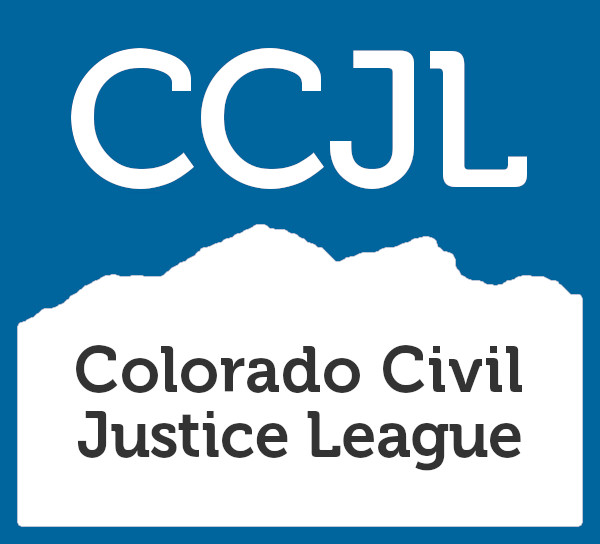Governor Polis vetoed two bills that put employers in the crosshairs for still more lawsuits, improving the product of this year’s Colorado General Assembly. Still, legislators passed 25 bills that use the threat of litigation for enforcement, either by creating private rights of action (PROA) or defining new “deceptive trade practices” under the Colorado Consumer Code.
To their credit, legislators passed two bills to enhance protections against lawsuits:
Senate Bill 58, sponsored by Sens. Dylan Roberts (D-Avon) and Mark Baisley (R-Woodland Park) and Reps. Shannon Bird (D-Westminster) and Briana Titone (D-Arvada), created protections for property owners to allow limited public access through their property to reach or extend hiking trails, including to some of Colorado’s 14,000-foot mountain peaks.
House Bill 1309, by Reps. Elizabeth Velasco (D-Glenwood Springs) and Rick Taggart (R-Grand Junction) and Sens. Roberts (D-Avon) and Janice Rich (R-Grand Junction), extends immunity from liability for individuals or organizations that assist with search and rescue operations.
Both bills were supported by Colorado Civil Justice League, as was Senate Bill 129, by Sens. Chris Kolker (D-Littleton) and Byron Pelton (R-Sterling) and Reps. Chris Kennedy (D- ) and Lisa Frizell (R-Castle Rock), which prohibits public agencies from requiring nonprofits to disclose data about their members.
Notably, lawmakers also defeated two measures that would have further exacerbated Colorado’s increasingly costly civil litigation climate:
HB 1014 represented the seemingly annual attempt to explode consumer code lawsuits by removing the “significant public impact” test. The SPI test is essential to differentiating between consumer protection claims which provide for treble damages because they represent a pattern of bad conduct rather than a regular tort claim between one consumer and a business. Contrary to claims by proponents of HB 1014, at least nine other states also require a consumer impact test for consumer protection lawsuits.
Senate Concurrent Resolution 1 would have referred to voters a constitutional amendment to allow the legislature to create retrospective civil liability for sexual abuse claims by minors. The Colorado Supreme Court unanimously ruled a previous such bill was unconstitutional. Proponents argued this bill was necessary to hold abusers accountable, yet lawsuits under this measure would rarely affect the actual abuser because a plaintiffs’ lawyer will not file a claim against a child predator who cannot possibly pay up. Moreover, there is no limit on criminal charges for any sex offense against a child that occurred after 1996. Finally, retrospective civil lawsuits against “responsible institutions” are fundamentally unjust because the people who were at fault for something that occurred 20-plus years ago are long gone today, so the punishment won’t be meted out against them. Instead, if a school is ordered to pay $10 million in damages, it would have no alternative than taking those funds from classrooms serving today’s students.
Finally, Gov. Polis rode to the rescue on two bills, using his veto pen to strike down:
HB 1008 which made construction industry contractors liable for wage claims against subcontractors. This bill would let subcontractors off the hook if they failed to pay their workers and instead obligate contractors to pay someone else’s employees. This bill would have created a treacherous return toward joint and several liability for contractors and subcontractors in a state which otherwise tends to limit a party’s tort liability to their proportion of fault.
HB 1260 purported to enact prohibitions against employee discipline but in reality infringed upon an employer’s First Amendment right to freedom of speech in communicating with employees. Gov. Polis echoed this concern and judged the bill to be a “remedy . . . much broader than the problem itself.”
In addition, the legislature helped to avert a November ballot showdown over a trial lawyer-backed initiative to eliminate all caps on non-economic damages in Colorado statute. Instead, lawmakers enacted a last-minute compromise between the plaintiffs’ bar and the business community which resulted in withdrawal of the ballot measure. As a result, Colorado caps will increase as follows: $1.5 million in general liability cases (up from $729,000) and $2.125 million in wrongful death; $857,000 in medical malpractice claims (up from $300,000), $1.575 million in wrongful death, both phased in over five years.
We are grateful to those legislators who cast tough votes during this session on behalf of Common Sense in the Courtroom!
